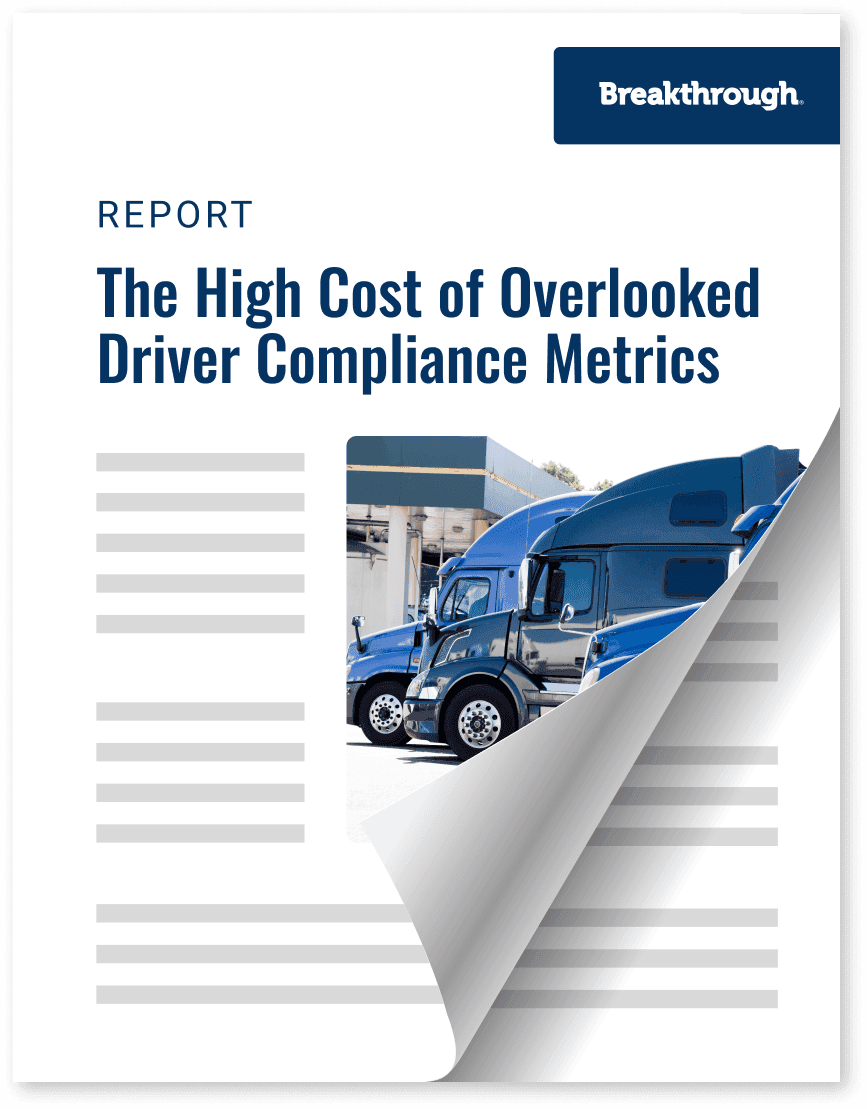The High Cost of Overlooked Driver Compliance Metrics

Trending
Top Posts
Freight management solutions are the backbone of efficient and cost-effective supply chain operations in today’s global economy. For shippers, these are vital tools to reduce operational costs, improve delivery timelines, and enhance customer satisfaction.

Freight management solutions are the backbone of efficient and cost-effective supply chain operations in today’s global economy. Freight management encompasses various activities, including carrier selection, route planning, cost control, shipment tracking, and ensuring compliance with regulatory requirements. For shippers, these are vital tools to reduce operational costs, improve delivery timelines, and enhance customer satisfaction.
By leveraging advanced technologies like transportation management systems (TMS), data analytics, and real-time visibility tools, shippers can streamline logistics operations, gain actionable insights, and adapt quickly to disruptions. This not only creates a more resilient supply chain but also provides a competitive advantage in meeting market demands efficiently and sustainably.
Freight management is the strategic process of overseeing and optimizing the transportation of goods throughout the supply chain, from origin to destination. Freight management involves a diverse range of strategic components designed to optimize shipping networks, drive cost efficiency, and support sustainability goals. These include carrier selection, route optimization, real-time freight benchmarking, transportation emissions management, fuel risk management, network optimization, RFP services and more. By leveraging advanced technologies that enhance visibility across these components, shippers can build a resilient and efficient transportation network, empowering them to stay ahead in a competitive market.
Selecting the right carrier on each lane in your routing guide is fundamental to freight management. With market-intelligent tools and real-time, shipper-transacted insights, shippers can easily enhance freight network efficiency and align with carriers that offer the best rates, performance, and compliance, creating a resilient strategy that withstands freight market cycles. Evaluating your carrier selection process and choosing best-fit carriers can result in a14% cost savings.
Optimizing your routing guide is a strategic approach to improving operational efficiency and reducing transportation costs. By analyzing and consolidating routes across product lines, you can reduce costs and emissions, while enhancing operational performance. These optimizations not only support a more sustainable supply chain but also drive impactful improvements across transportation networks.
Freight benchmarking extends beyond linehaul rates, encompassing a wide range of transportation metrics that can significantly enhance decision-making and operational efficiency. By analyzing key performance indicators (KPIs) such as transit times, on-time delivery rates, fuel efficiency, and carrier performance, shippers gain deeper insights into every facet of their supply chain. This holistic approach allows organizations to identify gaps, uncover opportunities, and optimize for cost savings, performance, and carbon impact.
By leveraging trusted and timely data, shippers can benchmark freight rates efficiently and effectively based on insights rather than assumptions. Comprehensive, clean data ensures peace of mind, helping shippers align transportation rates with current market trends while gaining a competitive edge.
Sustainability is becoming increasingly essential in supply chain operations. Integrating transportation emissions management technology into your freight management strategy empowers shippers to track and reduce scope 1 and 3 emissions while optimizing network efficiency. This approach positions companies for triple bottom line returns - improved financial performance, positive environmental impact, and increased social benefits.
Fuel is one of the largest and most volatile expenses in transportation. Diesel prices are influenced by several factors, including crude oil costs, refinery operations, distribution, delivery, and taxes. Incorporating a fuel risk management solution into your freight strategy empowers you to reduce the effects of market volatility, create budget certainty, and stabilize profit margins.
Effective network optimization is key to driving efficiency and cost savings within your supply chain. By maximizing load utilization and minimizing empty miles, shippers can achieve measurable benefits, including lower fuel consumption and reduced carbon emissions. Leveraging advanced freight management software solutions enables you to uncover inefficiencies and make data-driven decisions tailored to your unique needs. For example, Five Below uses advanced analytics to optimize their transportation network, achieving significant cost savings and operational excellence.
Lastly, freight management solutions should seamlessly integrate into your RFP process. Industry-leading shippers excel in RFPs by leveraging a comprehensive pre, during, and post-event strategy alongside a trusted and unbiased strategic RFP service provider. These providers deliver unbiased insights, evolving expertise, and ongoing compliance support to ensure long-term success. By aligning freight management and RFP processes with the same clean dataset, you can gain unmatched clarity and confidence in your decisions, enabling fair comparisons and optimized outcomes.
Regardless of your industry or company size, assembling the right shipping technology stack to optimize your transportation network is critical. Shippers, third party logistics (3PLs) and fourth party logistics (4PLs), and carriers all rely on strategic freight management solutions to reduce costs, improve operational efficiency, and maintain full visibility of your shipments at every stage in the supply chain.
Shippers play a critical role in defining transportation needs, developing a plan to move goods to market, collaborating with carriers, 3PLs, or 4PLs to execute the plan, and managing their networks to ensure efficient and cost-effective freight movement. Freight management solutions empower shippers by providing the tools and data needed to make smarter, data-driven transportation procurement decisions.
3PLs and 4PLs, also known as managed transportation providers, support shippers’ logistics plans and leverage freight management solutions to optimize supply chain operations, ensuring efficiency and seamless integration. 3PLs use freight management tools to handle transportation management and warehousing for shippers, leveraging shipment volume to negotiate competitive rates—especially where a shipper may have limited volume. On the other hand, 4PLs take a more comprehensive approach, managing all aspects of a shipper’s supply chain, from contract negotiations to performance monitoring.
Carriers are responsible for delivering freight from the origin to the destination safely, on time, and at a competitive price. By leveraging freight management solutions, carriers can gain valuable insights into market trends, meet contract requirements efficiently, and optimize networks through advanced features like route planning and emissions tracking to accommodate shippers' sustainability objectives.
Freight management goes beyond cost reduction—it streamlines operations, reduces risks, fosters sustainability, and empowers strategic decision-making.
By automating processes and leveraging advanced analytics through freight management software solutions, you can reduce costs through optimized carrier selection and route planning. For example, Owens Corning experienced immediate fuel savings within the first month of utilizing Fuel Recovery. Additionally, they achieved greater operational efficiency through enhanced data management, actionable insights, and access to an expanded network of optimal carriers with Breakthrough's freight management solutions.
Client Testimonial
See how Owens Corning partnered with Breakthrough to optimize their fuel and freight management strategy.

By uncovering freight network opportunities with AI, such as identifying deviations from the contract, automating manual tasks, and leveraging trusted data sources to make actionable recommendations to meet the industry standard, freight management solutions can improve efficiency. This enables you to make strategic decisions quickly and focus on fostering strong partnerships while reducing the risk of human error and minimizing manual efforts.
Freight management software solutions empower shippers by providing comprehensive scenario modeling, allowing them to evaluate multiple paths forward for their unique transportation network. These tools offer actionable comparisons of cost, compliance, and emissions, enabling data-driven decision-making. By leveraging these insights, shippers can confidently select the optimal solution tailored to their operational needs and strategic goals.
Freight management solutions empower you with greater visibility and control over their freight operations by providing real-time tracking and data insights. These tools reduce risks associated with delays or lost shipments while minimizing inefficiencies throughout the supply chain.
By leveraging real-time tracking and predictive analytics, freight management solutions improve delivery times and reduce delays. This level of transparency fosters trust, meets customer expectations, and builds long-term loyalty.
Freight management is evolving quickly to address the growing challenges faced by transportation leaders. With advancements in generative AI and machine learning models and a stronger emphasis on sustainability, the future of freight management is becoming smarter and more efficient.
Generative AI and machine learning are redefining logistics by analyzing vast amounts of data to predict demand, improve route planning, and cut costs. These technologies are also enabling smarter freight management by optimizing vehicle maintenance schedules, reducing downtime, and increasing operational efficiency.
Sustainability is no longer optional in the transportation industry. Modern freight management solutions are empowering shippers, 4PLs, and carriers to reduce emissions and meet ambitious sustainability goals. By leveraging real-time data and advanced analytics, freight management software solutions make it easier to reduce empty miles, optimize load fill, identify sustainable carriers, and share what alternative energy is available on your lanes.
Breakthrough offers reliable and data-driven freight management solutions designed to help shippers reduce costs, drive efficiencies, and decarbonize their networks. Our freight management solutions work alongside your 3PL or 4PL providers to offer an unbiased and strategic perspective to your operations. One standout offering is Capac-ID, a comprehensive productivity platform for shippers to keep a constant pulse on transportation network performance. By using Capac-ID, shippers can make their routing guide more agile with real-time, transacted rate benchmarking, lane-specific carrier identification, and actionable recommendations, ensuring efficiency and reliability at every step.
Freight Solutions
Explore how Breakthrough is shaping the future of freight management.
